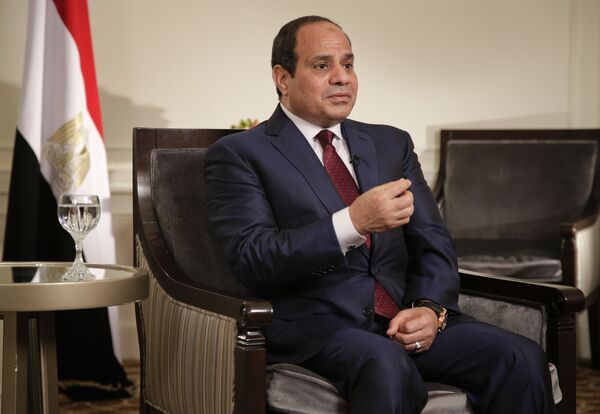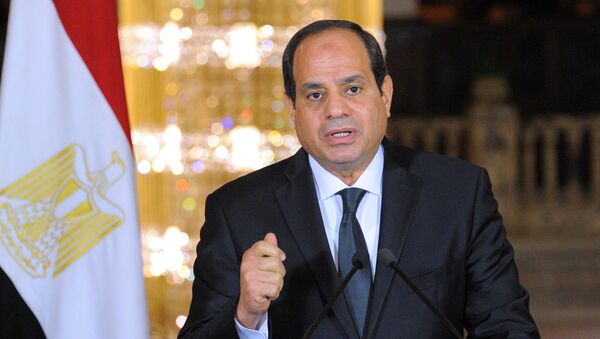The new bill will limit the activity of NGOs to developmental and social work, it will also introduce strict jail-terms of up to five years for those who breach the law.
The law also says that foreign non-government groups will have to pay up to US$16,000 to start work in Egypt and renew permits to operate in the country on a regular basis. Egyptian human rights lawyer Gamal Eid is quoted as saying that "the law eliminates civil society in Egypt, whether human rights or development organizations."
New NGO law in Egypt violates basic human rights and will destroy independent civil society. It must be abandoned https://t.co/rBlnlt86w0
— ISHR (@ISHRglobal) November 23, 2016
Perhaps most concerningly, organizations are prohibited from being able to publish the result of research or studies without them firstly being submitted to the government and receiving the stamp of approval. It has been announced that those who violate the law could received up to five years imprisonment and massive fines to the tune of one million Egyptian pounds, which is more than US$55,000.
The law — which has been excoriated by United Nations and international rights groups such as Human Rights Watch — requires a "national authority," a definition which includes military and intelligence officials, to monitor foreign funding for Egyptian NGOs as well as the activities of foreign non-government organizations in the country. The law will give Egypt's roughly 46,000 NGOs one year to comply or face court challenges.
The new NGO law effectively prohibits Egyptian human rights NGOs from registering and working in #Egypt
— Amnesty North Africa (@AINorthAfrica) May 29, 2017
Egyptian lawmakers argue that the bill is a necessary safeguard for Egyptian security against foreign funded subversive activities.
Activists in the country argue that they are in the midst of the most draconian crackdowns in their recent history under Sisi, many of which are worse than former Egyptian strongman Hosni Mubarak.
Charities have said that the measure will restrict them at a time when government subsidy cuts and tax hikes have made it even harder for NGOs operating in the country — usually plagued by scarce funding — to operate. The bill will also bestow the power in Sisi's government to arbitrarily decide who is allowed to establish an NGO, and for what reason. It says that groups must "stick to the state's development plan."
The law comes on the heels of the introduction of a host of policies and laws that human rights advocates say dismantle civil society and crush political dissent.

In 2015, two years after his coup against the democratically elected president Mohamed Morsi, Sisi introduced a contentious "anti-terrorism law." The law promised incarceration and fines for anybody or any organization that spreads what the government calls "false" reports.
Critics say this this essentially translates to reports that contain interpretations of events that do to align with the Egyptian government's narrative. The Egyptian authorities also passed a bill in late 2016 that established a Supreme Council for the Administration of the Media, which was able to revoke licenses to foreign media and fine publications and broadcasters.
Shortsighted. Repressive. Illogical. Vengeful. Authoritarian. Heartbreaking. https://t.co/lONSDRPauz
— Allison L McManus (@AllisonLMcManus) May 29, 2017
President Sisi has presided over a government that stands accused of flagrant violations of human rights since taking office by junta in 2014. Thousands of dissidents and journalists have been incarcerated, many without legal trials.
During his first overseas trip to Saudi Arabia in May 2017, US president Donald Trump praised the rule of former Defense Minister Sisi, saying that, "safety seems to be very strong" under the Sisi's administration and accepted a leader to visit Cairo later on in the year.
Statement from #Egypt's fearless @MadaMasr — one of the last bastions of independent journalism in #Sisi's dictatorship, blocked overnight pic.twitter.com/PjG6aR0nzL
— Jack Shenker (@hackneylad) May 25, 2017
Former US president Barack Obama was much more stern in his rhetoric regarding Sisi's human rights record. It is likely that with a president in the White House who seems unmoved by his strongman governance, Sisi feels more confident with ramming through anti-democratic policies that might have earned the condemnation of state department officials in the Obama-era.



